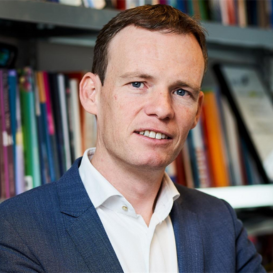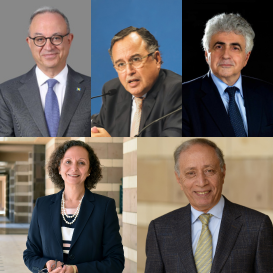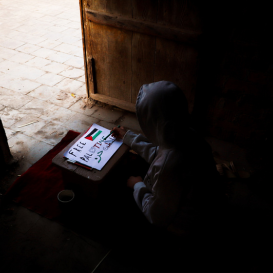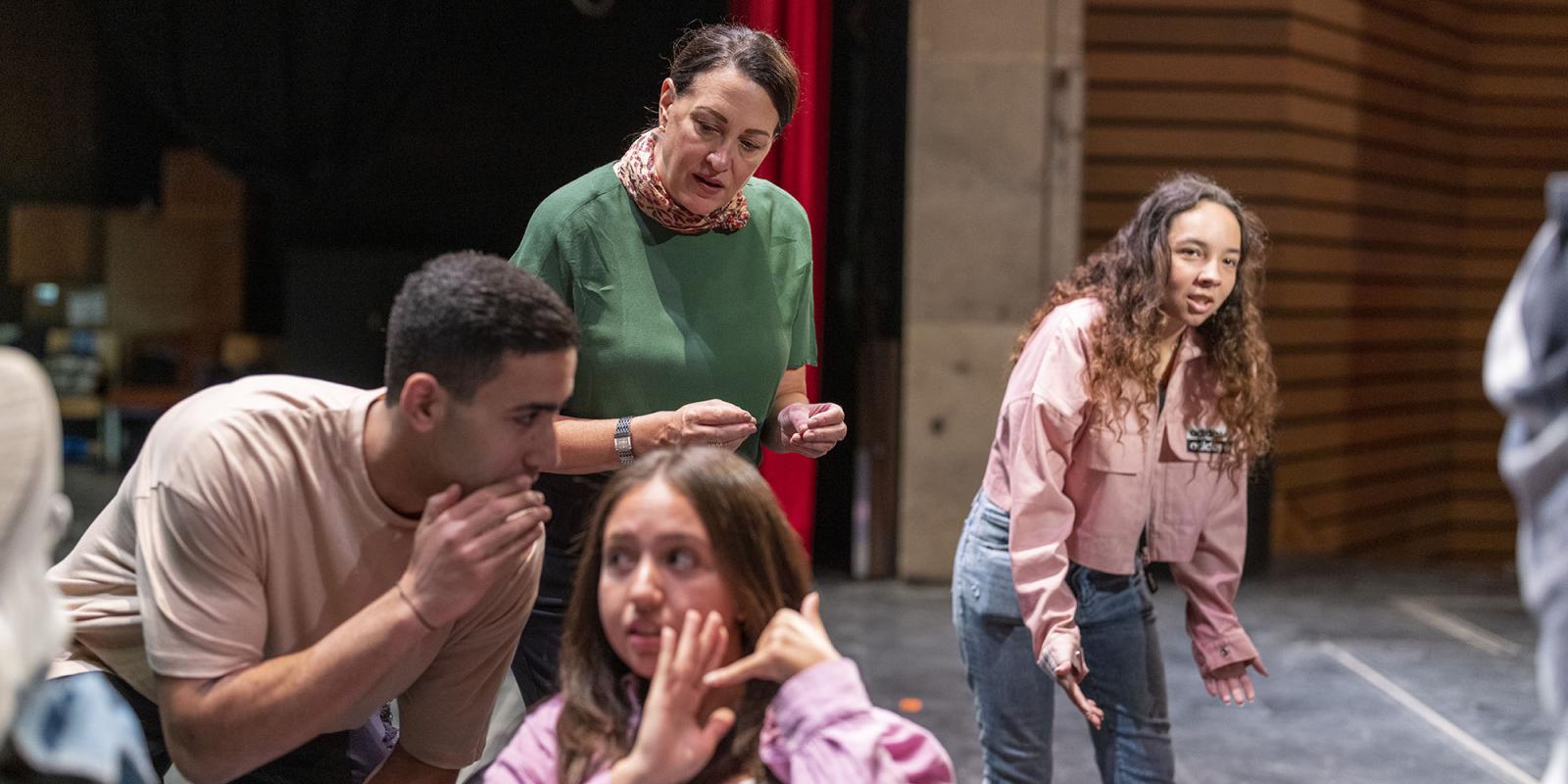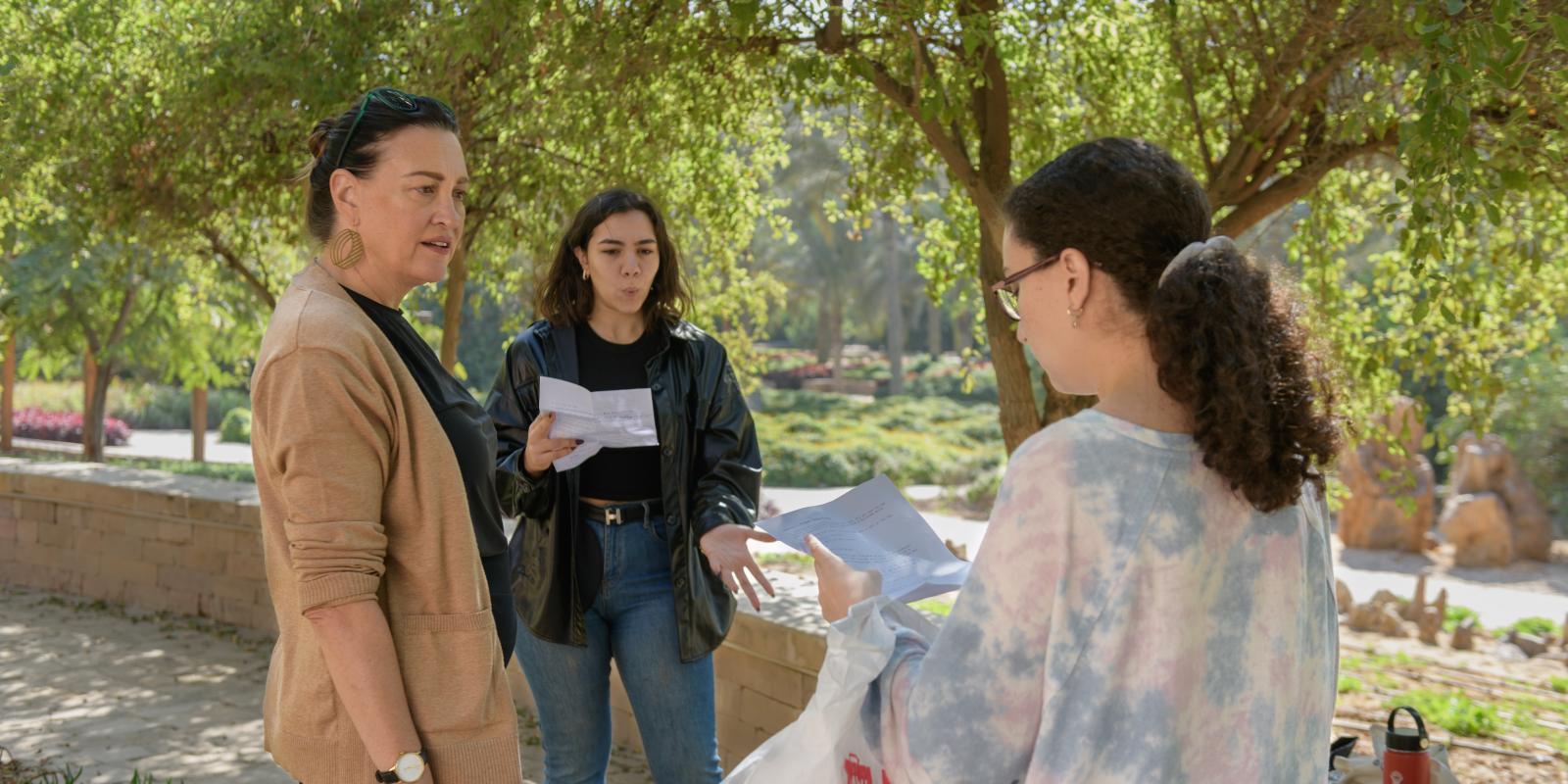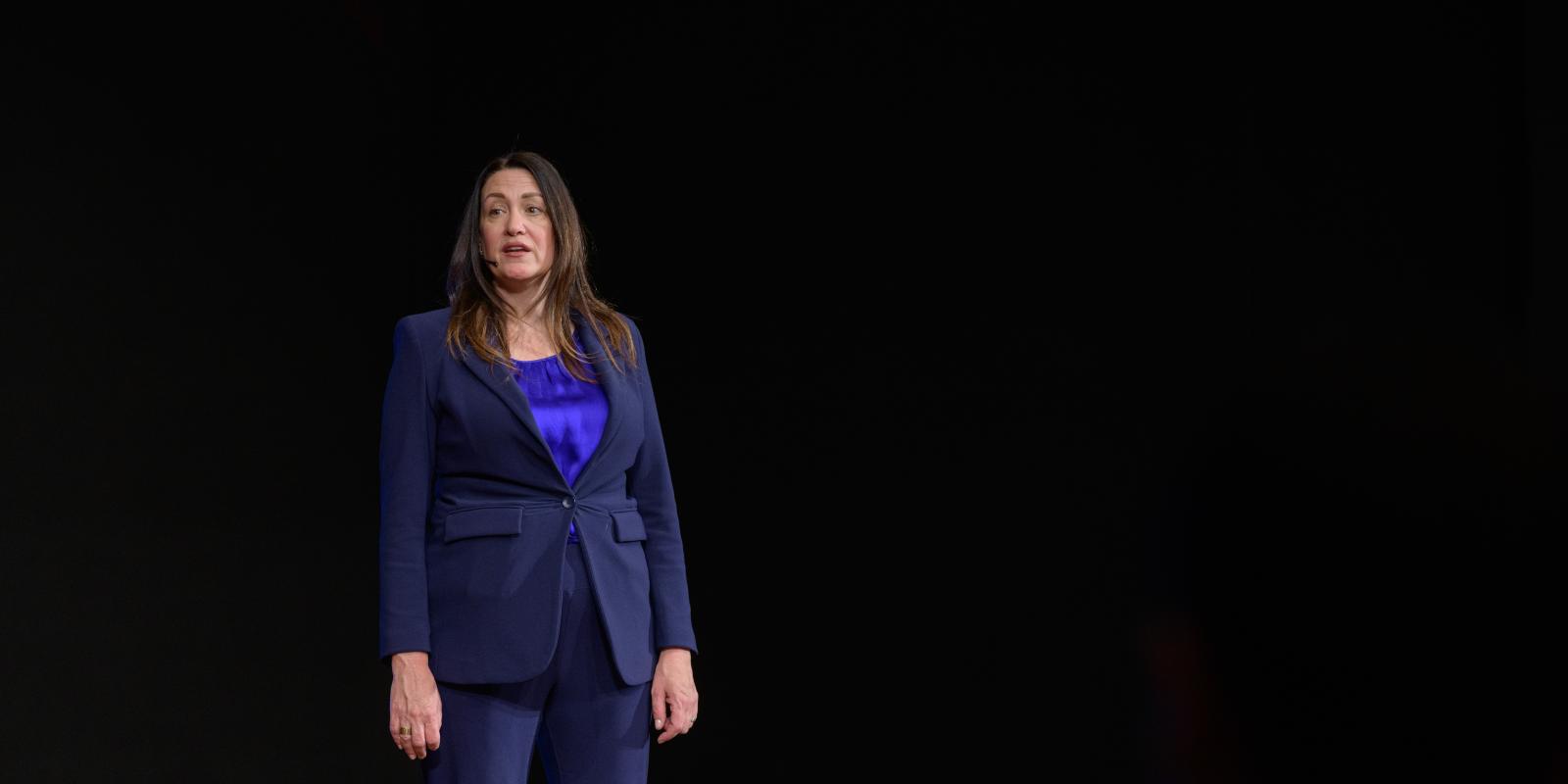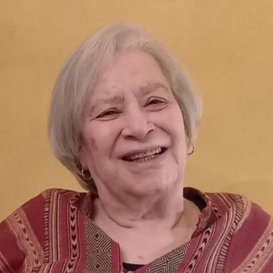With a specialization in cognitive science, Jacquelyn Berry, assistant professor in the Department of Psychology has launched Egypt’s first experimental psychology laboratory at AUC, where students, faculty and staff study attention, perception, memory, learning and language using computer- and eye-tracking technology.
“When people think of psychology, they tend to focus on everything that goes wrong with the brain –– depression, anxiety and typical disorders –– that they take for granted everything that goes right like all of the amazing things we do every day, from split-second decisions when driving a car or handling multiple tasks at once,” says Berry. “Our brain is juggling so much information, and we only notice when things go wrong because the brain gets it right 99% of the time.” That’s why visual illusions and 3D movies are so much fun because, somehow, we can trick this amazingly reliable organ.”
Having launched just last year, the lab has already been home to half a dozen studies and hosted more than 100 experimental participants. Berry has approximately one dozen research assistants in the lab at any given semester, including graduate and undergraduate students. “Everyone gets enriched,” Berry explains. “Students get hands-on experience conducting research, participants usually get some bonus credit towards their classes and anyone involved is exposed to the unique research we are doing at AUC.
With help from the lab’s assistants and collaborating with other Egyptian universities, Berry organized the inaugural Cognitive Screening and Cognitive Interventions in Egypt conference, which was held at AUC in Fall 2023 and focused on training Egypt-based medical professionals, from psychologists to neurologists, in cognitive screening and neuropsychological intervention strategies. The conference featured speakers from four different continents, including Dr. Nasser Loza, president of the World Federation for Mental Health, and Dr. Ziad Nasreddine, president of MoCA Cognition, Health Tech who developed the test used by the White House to assess mental fitness. “The conference examined how we can modify the tests conducted in Western populations for the Egyptian population; we’re getting there,” says Berry,
Eyes as Windows to the Soul
Berry’s research approach is unique as she employs video games to observe cognitive functions through computer-based tasks and the video game Tetris. The game she employs in her research collects more than 100 different underlying metrics to measure human performance, including eye-tracking.
First joining AUC as a Fulbright U.S. Scholar in 2019, Berry researched Arabic-English biliteracy and how this affects switching between different technology interfaces. “Now we're looking at AI and how that can shorten the learning curve, where people go from not knowing how to do something to being an expert at it and all the different stages in between. My research examines if we can jump that curve a little bit with the help of AI learning tools. That's what I've been doing with Tetris.”
But aren’t video games bad for children? Berry has a different argument.
“Certain types of video games enhance cognitive function, specifically first-person shooters because they boost attention. Something happens when you motivate people toward a goal,” she says. “Understandably, people worry about violence in video games, but kids do get smarter and their attention gets better. There is even evidence that ADHD can be treated using video games and Tetris is known to prevent post-traumatic stress disorder. Of course, everything has to be in moderation.”
With the eye-tracking technology at AUC’s experimental psychology lab, Berry can closely trace what's happening in the brain from an executive function perspective.
“Take Arabic-English speakers, for example,” says Berry. “If you’re a native Arabic speaker and you're speaking to me in English, you're actively suppressing Arabic because you know that I'm not going to understand it very well. But if you go home and spend time with, say, your grandparents, you're going to suppress all the English that you use. That ability to suppress one language and use the other is what we call executive function, and it affects the way we process information and manage everything we do. People with high executive function are better at all tasks related to inhibiting things they don't need right now. It’s also protection against dementia. So bilingual speakers are less likely to develop Alzheimer’s disease when they get older.”
The eye-tracking technology at the lab provides other unique insights. “By looking at someone's pupils, you can see how much cognitive load they're under,” Berry explains. “If an expert sees something they have experience with, their pupils aren't going to dilate as much as someone new at it. The eyes are indeed the windows to the soul.”
Moving forward, Berry hopes that the lab will draw in people of all ages for testing. “My goal is to increase our sample population so we can better understand cognitive functions across age groups,” she says. “I want to continue with high-level eye-tracking research to enhance our baseline tests on cognitive functions, such as the types of tests we use to uncover dementia and Alzheimer's; and take our AI research to the next level to understand how people learn new tasks, both in Tetris and outside of Tetris.”
Want to get involved? Send an email to [email protected].

